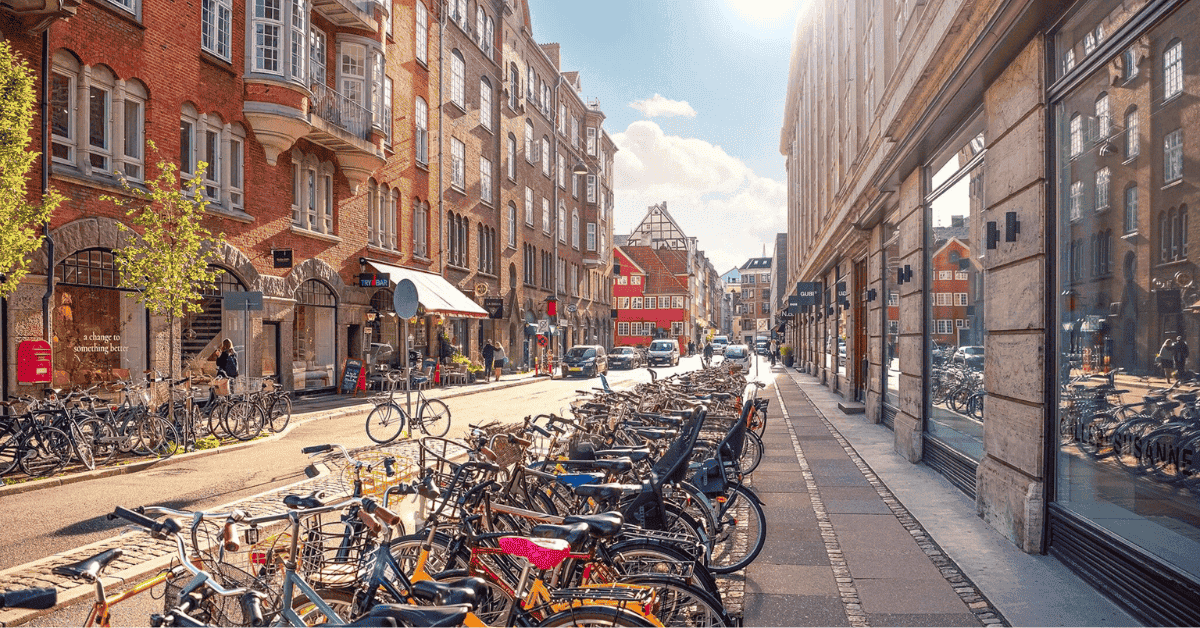World Car-Free Day 2024 is celebrated annually on September 22 across cities worldwide. The day encourages motorists to step away from their cars for 24 hours and promotes alternative transportation modes like walking, cycling, and public transport. Observing this day helps reduce air pollution and fosters the development of safer, cleaner urban environments.
Related: 5 Cities Ranked Top Places to Live Car-Free
Significance of World Car-Free Day 2024
- Reducing Air Pollution: The primary goal of World Car-Free Day is to curb air pollution and greenhouse gas emissions, which are largely driven by the transportation sector.
- Promoting Alternative Transport: Encouraging people to walk or cycle instead of driving increases physical activity and overall well-being.
- Fostering Community Engagement: This day helps communities come together to embrace a car-free lifestyle, supporting initiatives for safer streets and shared public spaces.
- Supporting Sustainable Urban Mobility: Cities around the globe showcase their efforts towards clean, sustainable mobility, with European cities celebrating European Mobility Week from September 16-22.
Historical Origins of World Car-Free Day
- Initial Concept: The idea of reducing car usage emerged during the 1973 oil crisis, but it gained momentum during the 1994 “Accessible Cities” conference in Toledo, Spain.
- First Cities to Observe: Reykjavik (Iceland), La Rochelle (France), and Bath (UK) were among the first cities to organize World Car-Free Day.
- Global Campaigns: The Environmental Transport Association (ETA) in Britain launched the first national car-free campaign in 1997. By 1999, Europe embraced this with a pilot Car-Free Day, which has since evolved into the EU’s annual “In Town Without My Car” campaign during European Mobility Week.
- World Car-Free Network (WCN): In 2000, Car Busters (now WCN) initiated the official “World Car-Free Day” on September 22, coinciding with the EU’s Carfree Day.
The Impact of Vehicle Emissions on Our Planet

- Leading Contributor to Climate Change: Vehicles are the fastest-growing source of CO2 emissions from fossil fuels, contributing heavily to global warming.
- Air Pollutants from Vehicles: Cars release harmful substances like carbon monoxide (CO), nitrogen oxides (NOx), particulate matter (PM), and volatile organic compounds (VOCs) into the air. These pollutants contribute to poor air quality, particularly in urban areas.
- Greenhouse Gas Emissions: Vehicle exhaust is responsible for a significant portion of the world’s greenhouse gases, worsening climate change and environmental degradation.
- Traffic Congestion and Fuel Consumption: Traffic jams cause vehicles to consume more fuel, exacerbating environmental issues and increasing emissions.
Key Facts and Figures on Transportation and Emissions
- Global Transportation Emissions: The transportation sector is responsible for approximately 15% of the world’s annual emissions.
- Harmful Pollutants: Vehicle exhaust releases fine particles like PM2.5, which are linked to millions of deaths globally, especially in densely populated urban centers.
- CO2 Emissions: Internal combustion engines emit 3.5 billion metric tons (BMT) of CO2 each year, representing nearly half of global transportation-related emissions and around 10% of total global fossil CO2 emissions.
- Solutions in Action: Cities such as London have successfully implemented Low Emission Zones (LEZs), reducing pollution and improving air quality through stricter regulations on vehicle emissions.
The 2024 Theme: ‘Shared Public Space’
The theme for European Mobility Week 2024, which coincides with World Car-Free Day, is “Shared Public Space.” This theme promotes the idea of reclaiming urban areas for pedestrians, cyclists, and public spaces, aiming to create a more inclusive, sustainable urban environment.
Click Here: Top 10 vegetarian protein sources
Conclusion: A Step Towards a Sustainable Future
World Car-Free Day 2024 is a critical step in highlighting the importance of reducing our reliance on vehicles. By participating in this global initiative, individuals and cities can play a part in combating climate change, improving air quality, and building safer, more sustainable communities. Embracing alternative transportation methods not only benefits the environment but also promotes healthier lifestyles and stronger community bonds.
FAQs
What is the purpose of Car-Free Day?
The purpose of Car-Free Day is to encourage people to reduce their reliance on cars, promote environmental awareness, and use alternative modes of transport like walking, cycling, or public transport.
Who created Car-Free Day?
Car-Free Day was created by environmentalists and urban planners in the 1990s to raise awareness about the impact of cars on the environment and promote sustainable transportation.
Why is Car-Free Day important?
It highlights the need to reduce air pollution, cut carbon emissions, reduce traffic congestion, and promote healthier lifestyles by using environmentally friendly transportation.
What date does Car-Free Day happen around the world?
Car-Free Day is celebrated globally on September 22 each year.
Why is World Car-Free Day celebrated?
It’s celebrated to encourage cities and individuals to explore how their streets would look and feel with fewer cars, promoting cleaner air and safer streets.
Which city is car-free?
Cities like Venice, Italy, are car-free, but many cities participate in Car-Free Day by closing streets to traffic for the event.
What is the history of Car-Free Day?
The movement began in the 1990s as a grassroots effort to promote sustainable transportation and reduce environmental damage caused by cars. It has since gained global recognition.
What is the meaning of “car-free”?
“Car-free” refers to an area or day when cars are banned or greatly limited, promoting alternative, eco-friendly ways of travel.
Who owns the first car in India?
The first car in India was owned by Jamsetji Tata, the founder of Tata Group, in the early 1900s.
International Car-Free Day benefits:
Reduced air pollution, improved public health, less traffic congestion, and awareness of sustainable living.
World Car-Free Day activities:
Activities include street closures, bike rides, walking tours, public transport promotions, and environmental awareness campaigns.
World Car-Free Day 2024 theme:
The theme for 2024 is yet to be announced, but previous themes focused on sustainable transport, environmental health, and reducing car dependency.

